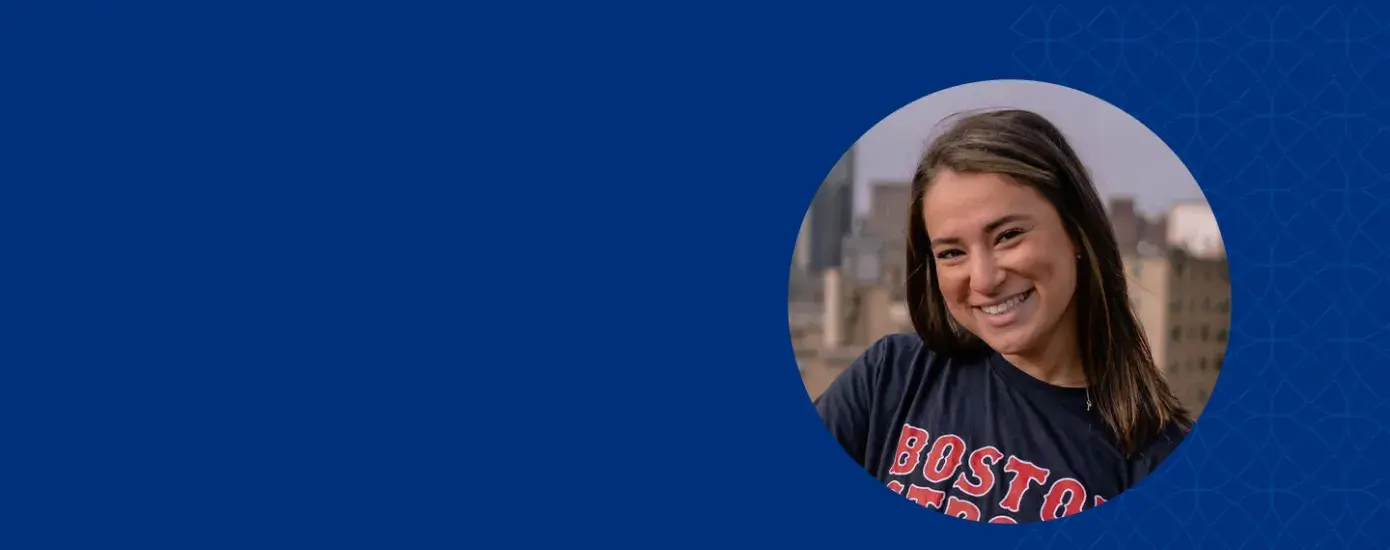
(Pronouns: she/her)
What year did you start the program?
2021
What are your prior degrees and at which institutions?
Bachelor of Science in Occupational Studies, Minor in Psychology, Worcester State University
Master of Science in Occupational Therapy, Worcester State University
What was your favorite course in the program?
OH881/CSH881 Analyzing Influences in Health Care and Service Delivery AND OH885 Leadership in Interprofessional Teams were my two favorite courses in the program. I felt as though I was taking real, everyday problems that I see at my place of work and going to class with them. I felt heard and understood by my classmates and professors during live sessions and small breakout discussions. I could take tangible action steps that I was learning in class at night and bring the skills with me to work the following day. These classes helped shape me into the leader I am today.
What was your Innovation Project title?
Increasing Resiliency & Recovery Utilizing Trauma Informed Care Principles: Development of Behavioral Health Occupational Therapy Consult Services
Tell us about your Innovation Project.
A fun fact is that my innovation project got me a big promotion at work. While I was working on the project in class, I had written a proposal for a manager position, with the hopes of implementing my project in the future. I was given the promotion and got to actively fine- tune the project both in school and at work. My innovation project was to create a Behavioral Health OT consult service across the medical floors to provide access to services for patients with emotional/behavioral health needs. I was able to hire and onboard another full-time OT who floats around the medical center, providing consultations and 1:1 sessions for patients undergoing a mental health crisis. Our department aims to train staff on the use of trauma-informed care principles with patients and provide access to meaningful activities for patients in the hospital setting. My innovation project is being implemented at one of Boston’s biggest medical centers, and the department continues to grow.
What do you think is special about the Post-Professional OTD program here at the MGH Institute?
There are so many amazing and special things about the IHP, but my favorite part is the community of people I now feel are forever colleagues and friends. From witnessing the first babies of our colleagues over zoom to group texting about a bad day at work, I feel supported and consistently learn from everyone in the program. We’ve all been through so much together. You learn so much about one another during the time spent inside and outside of the classroom, which fosters a place of true support and mentorship. I also love the flexibility this program provided me, to be able to complete classes via zoom with a full-time job, was fantastic. I was able to still have a life, travel, see friends on the weekends, and create a space where school was embedded into my evening routine.
Why did you choose to come to this program?
I chose to get my doctorate, during a time when I felt burnt out from the pandemic and was looking to find my spark for OT again. I was looking for mentorship and guidance from someone/somewhere that I respected. The second I jumped on a call with Sarah, I instantly felt excited about my future in OT. I felt heard, and validated, and put my deposit in immediately.
What are your goals for the future after you graduate?
After I graduate, I’m hoping to continue to advance my career as the Manager of Behavioral Health OT at Tufts Medical Center. I’m looking forward to submitting my manuscript to OT Practice Magazine and presenting it at future OT conferences. I would also like to be an OT adjunct professor at the IHP in the future, giving insight into mental health practice!
